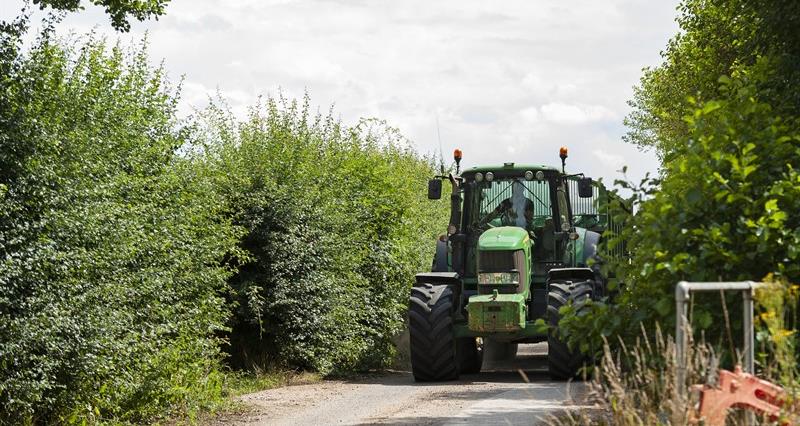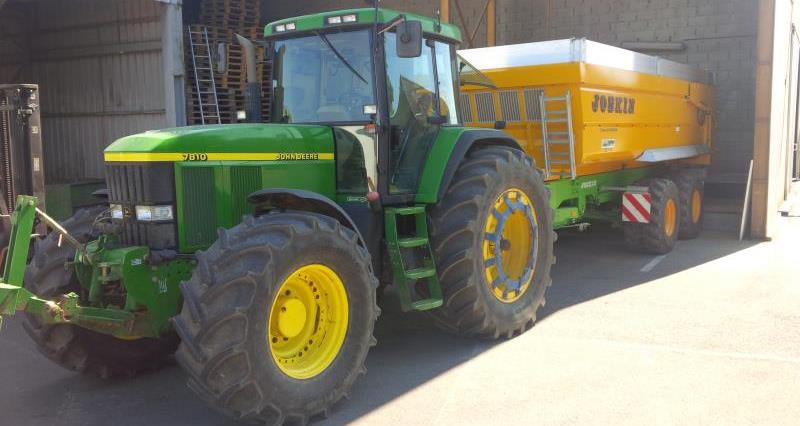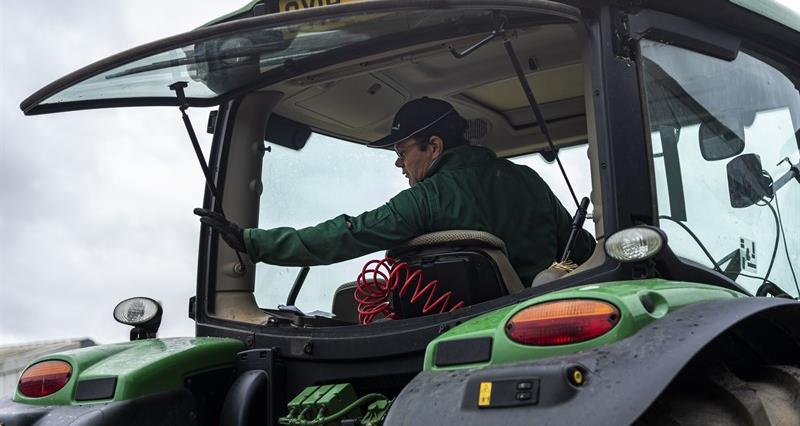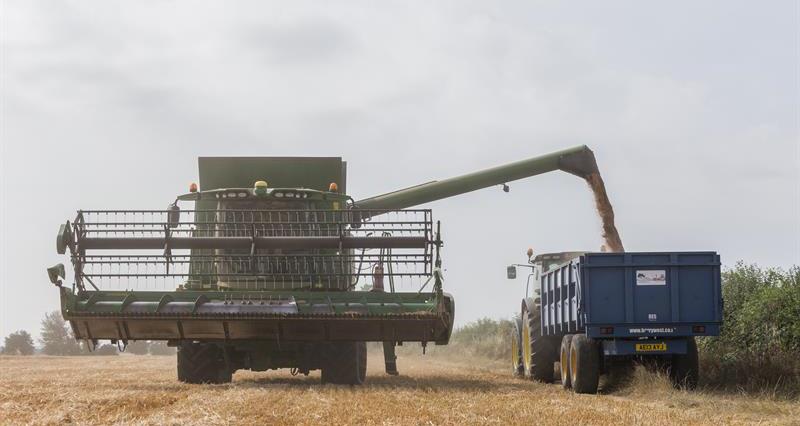The nature of farming now means that transporting goods along roads with tractors and trailers is becoming more and more of a necessity. When transporting goods, it is important to consider load security and to ensure that loads are secured in a safe way that complies with the law.
Transporting loads and the law
When transporting goods by vehicle or trailer, the law states that you must ensure the load is secured so that the use of the vehicle or trailer does not involve a risk of danger or injury to any person.
The law also states that:
‘The load carried by a motor vehicle or trailer shall at all times be so secured, if necessary by physical restraint other than its own weight, and be in such a position, that neither danger nor nuisance is likely to be caused to any person or property by reason of the load or any part of thereof falling or being blown from the vehicle or by reason of any other movement of the load or any part thereof in relation to the vehicle.’
The DVSA’s guidance
The DVSA (Driver and Vehicle Standards Agency) has guidance on securing loads on HGVs and goods vehicles, with the aim of helping vehicle operators follow the law when transporting loads.
The NFU encourages members to transport loads safely and securely and advises that the DVSA’s guidance should be followed. In addition, it is important that farmers have a good quality risk assessment in place to demonstrate that the safety of the load has been adequately considered.
Although the DVSA’s guidance is non-statutory and not an enforcement guide, those responsible for enforcing load security provisions may look to the guidance to inform their approach.
Following the guidance could make it easier to establish that the load has been adequately secured, reducing the potential for any dispute as to whether that was the case.
Lobbying for changes to the guidance
Following the release of the DVSA’s guidance in July 2023, the NFU identified some potential issues relating to the application of the guidance to the transport of agricultural loads. The NFU raised a number of concerns with the DVSA about its updated guidance, which we considered went further than the law in some areas.
While it is clearly important that loads are adequately secured so that they can be transported safely, one of our main concerns was the suggestion that all agricultural loads must be secured by sheeting regardless of whether the load settles below the height of the sides of the trailer.
In the NFU’s view, this appeared to go further than what the legislation requires, as some agricultural loads are unlikely to move or bounce out of the trailer even without sheeting.
After lengthy engagement with the DVSA regarding this issue, the NFU is pleased to see that this issue has been addressed in the DVSA’s updated guidance that was published on 9 December 2024.
The DVSA’s updated guidance more accurately reflects the relevant legislation in relation to the transport of agricultural loads.
Bulk tippers
Crucially, the guidance no longer includes the requirement to sheet all bulk loads.
The guidance now states the following: ‘Covering the load will prevent it from bouncing out of the vehicle when you take it on the road.
‘In some circumstances, where the load sits below the sides of the vehicle, you might not need to use an appropriate cover. The operator must assess the risks and be able to justify it as a safe system.’
In addition, the guidance goes on to state that an appropriate cover must be used if your risk assessment shows you need one. Further information can be found under ‘Open vehicles and trailers’ on the government’s website.
Risk assessments
The updated guidance also includes an additional section on the carrying out of adequate risk assessments in order to determine the load security measures required.
The NFU is pleased that our request to add a section on risk assessments has been included, in addition to guidance recognising other risks that ought to be taken into account when managing load security.
Safety of the load travelling on roads and the potential impact on other road users must always be reviewed and evidenced when assessing load security and determining the most suitable methods to ensure the load remains safe and secure so far as is reasonably practicable.
Within the section on risk assessments, the DVSA has provided a list of risks you should include in your risk assessment when assessing your load:
- the nature of the journey – length, type of roads, traffic and other potential obstacles such as low bridges
- the type of load – weight, size, shape
- the type of security used – if it’s not in line with this guidance, consider how you’re minimising the risks
- other issues such as the weather and the experience of the people loading and unloading the vehicle
- working at height
- manual handling
- trailer coupling and uncoupling
- separating pedestrians from vehicles.
All of these points should be reviewed regardless of the vehicle and trailer being used to move the load and the type of load.
There may also be other factors that may need to be considered in some cases to ensure that all risks are incorporated into the risk assessment.
Bales and boxes
Some changes have also been made to the guidance in relation to carrying bales and boxes in HGVs and goods vehicles. At the request of the NFU, hydraulic sided bale trailer and ratchet straps or chains are now expressly included in the guidance as suitable options for securing hay and straw bales on vehicles or open trailers.
In addition, after engagement with the DVSA, the requirement to make sure hay or straw does not become loose during transport in any circumstances has been amended to: ‘You must make sure that hay or straw does not become loose during transport and cause a hazard to other road users.'
The NFU asked for this change because it would be practically impossible for users to ensure that no bits of hay or straw become loose at all, regardless of how well the bales are secured and, in our opinion, the previous wording went beyond the legal requirements.
It is, however, vital that no hay or straw becomes loose during transport in a way that would cause a hazard to other road users.
Penalties
If loads are not secured adequately, fines and points may be awarded. Drivers and employers are at risk as the law applies to drivers and anyone who causes or permits the use of vehicles deemed to be unsafe.
We understand that the DVSA has advised that roadside examiners will take a pragmatic approach, but action will be taken if loads are found to be unsafe.
Further advice
If you have any concerns or questions about load security or updates to the DVSA’s guidance, you may contact NFU CallFirst for free initial legal advice and guidance on 0370 845 8458.
If you require more detailed independent legal advice, then NFU CallFirst can refer you to one of the NFU’s legal panel firms of solicitors. If you subscribe to the NFU’s Legal Assistance Scheme, then you may be eligible for a contribution towards any professional fees that you incur.
You may also wish to appoint an appropriate health and safety adviser to assist with the preparation of risk assessments for your holding.



